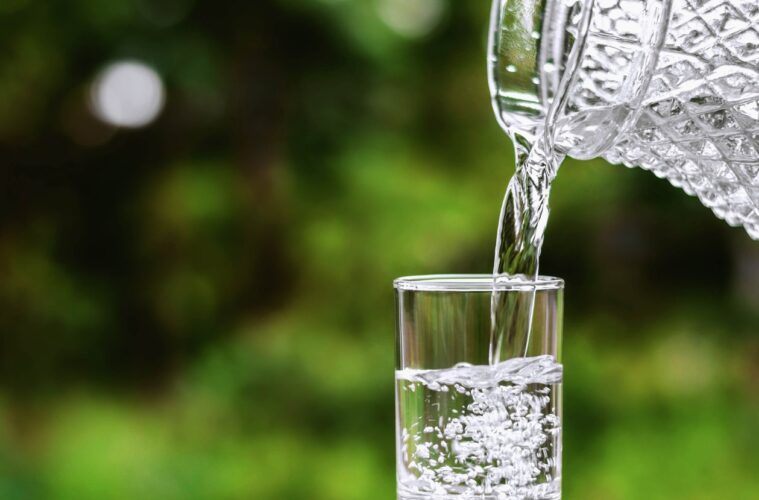Water is essential for life, and ensuring your home’s water is of the highest quality is vital. Access to clean, safe drinking water is a fundamental human right, and it’s up to us to ensure our families have access to the best possible water.
Homeowners can improve their water quality in several ways, such as installing filtration systems or using water softeners. This blog post will explore three common filtration systems: reverse osmosis, water softeners, and whole-house filtration systems. We’ll discuss their unique features and benefits and compare them so you can decide which approach might be best for your home.
What Are Water Quality Services?
Water quality services include installing a filtration system or water softener. Plumbing companies throughout the country offer quality water services, so you can search for “plumbers near me” to find one that fits your needs. While filtered water tastes better, why should anyone use it in their water systems?
Why are Water Filtration Systems Important?
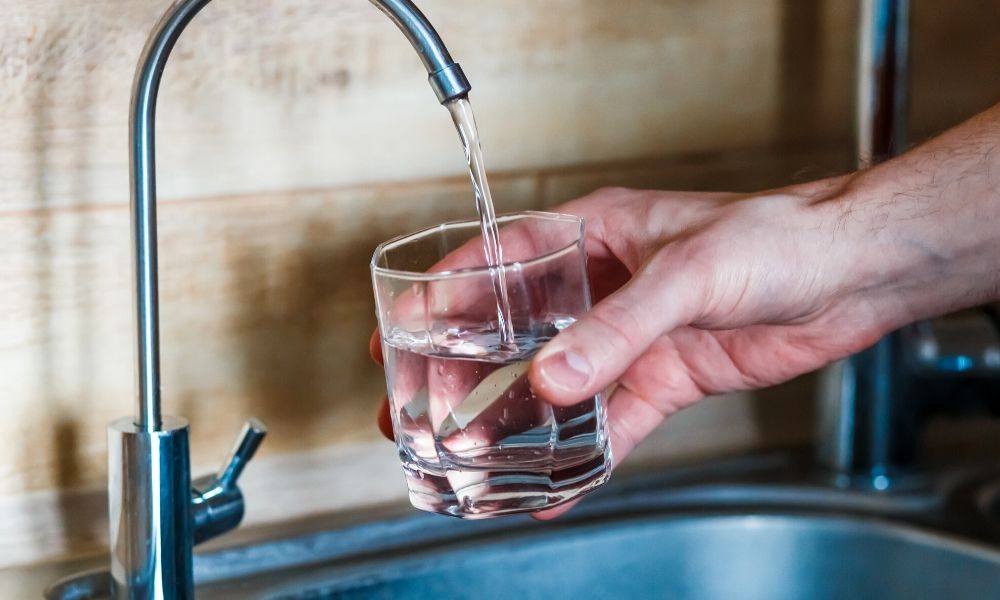
source: pinterest.com
Water filtration systems are essential for homeowners to access clean, safe water. These systems work by filtering out contaminants from unfiltered water, such as bacteria, viruses, lead, chlorine, and other substances that can harm a person’s health. Removing these contaminants improves the quality and taste of the water while also extending the life of appliances and reducing plumbing problems caused by mineral buildup.
In addition to providing clean drinking water, using a water filtration system can reduce bottled water usage, save money on utility bills over time and increase the overall value of a residence. With so many benefits associated with using a water filtration system in the home, it’s no wonder why more and more homeowners are investing.
The Science Behind Reverse Osmosis
Reverse Osmosis (RO) is a type of filtration system that uses pressure to force contaminated water through a semi-permeable membrane that removes impurities like salt, lead, arsenic, chlorine, fluoride, bacteria, and viruses from your drinking water. Reverse osmosis systems are some of the most popular filtration systems available, effectively removing up to 99% of contaminants from tap water.
How a Reverse Osmosis System Works
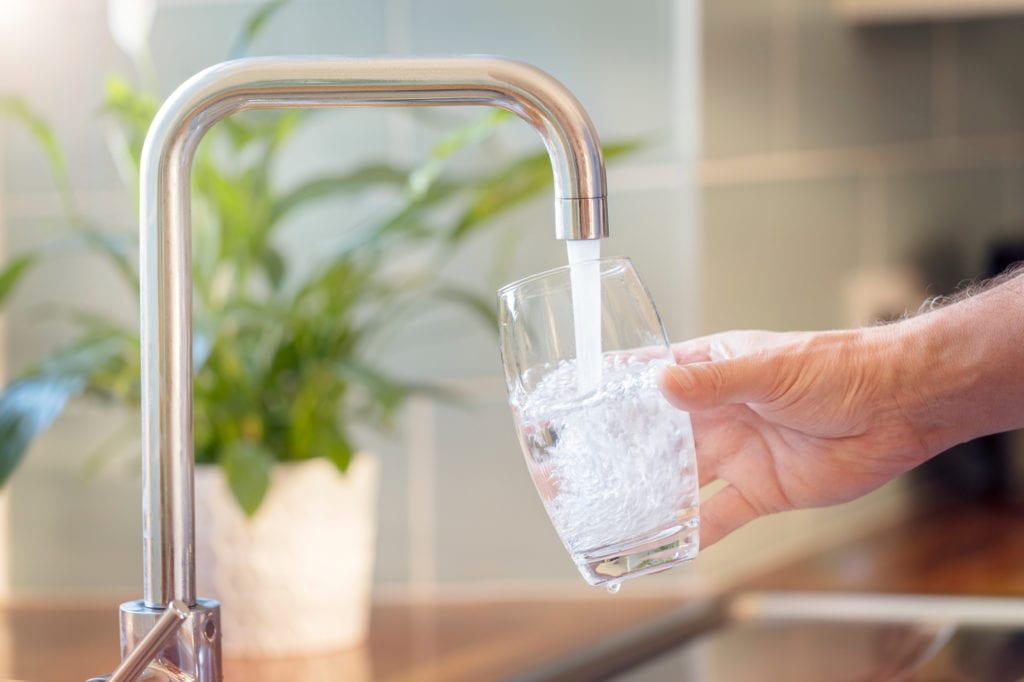
source: pinterest.com
Reverse osmosis is a process used to purify water. It uses pressure to force water through a semipermeable membrane, which acts as a filter. This membrane allows only specific molecules and ions to pass through while blocking others, such as sediment and chlorine. The result is clean, purified water that is free of impurities. You can find reverse osmosis systems for drinking water, aquariums, and other applications in homes and businesses.
The reverse osmosis process involves two concepts: osmosis and semipermeable membranes. Osmosis is the natural movement of molecules from an area of higher concentration to a place of lower concentration. A semipermeable membrane acts as a filter that permits specific molecules or ions to go through but prevents others. In reverse osmosis systems, the membrane blocks sediment and chlorine while allowing clean water to pass through.
For reverse osmosis systems to work correctly, they must be connected to a pressurized water source, like a municipal water supply or well pump system. The pressure pushes the water through the membrane to be filtered and purified before being collected in a storage tank for later use.
How a Water Softener Works
A water softener is a device that reduces the hardness of water by removing minerals like calcium and magnesium. Softening hard water involves exchanging the minerals in water with a much gentler element, such as salt or potassium ions. This exchange happens in an ion exchange resin bed filled with negatively charged beads. The resin bed attracts positively charged calcium and magnesium ions when hard water passes through it, and these ions are exchanged with sodium or potassium ions that carry negative charges.
Types of Water Softeners
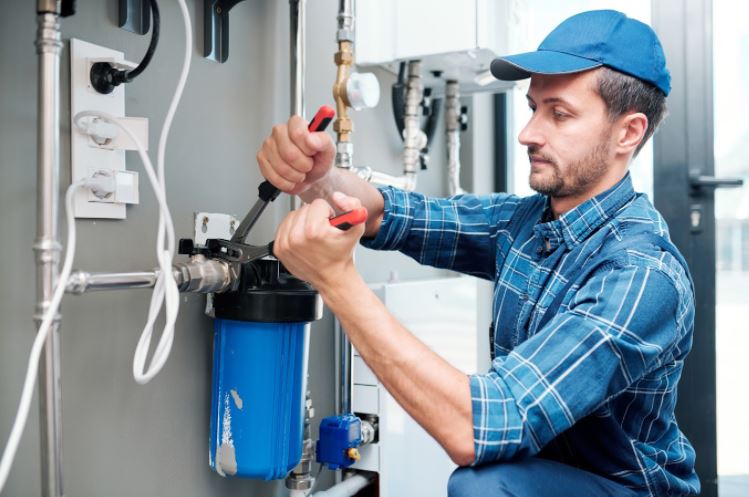
source: pinterest.com
Several types of water softeners are available on the market today, including salt-based systems, potassium-based systems, dual tank systems, and magnetic systems. Salt-based systems are the most common and exchange minerals in hard water. Potassium-based systems use potassium chloride instead of sodium chloride to soften hard water. Dual tank systems have two tanks that alternate between regeneration cycles so that one tank is in use while the other regenerates. Magnetic systems use magnetic coils to reduce mineral buildup in pipes.
Benefits of Water Softeners
Water softeners use ion exchange technology to remove hard minerals like calcium and magnesium from tap water. These minerals can cause scale buildup on plumbing fixtures and appliances, reducing their efficiency over time. Removing these hard minerals with a softener can extend the life of your plumbing fixtures and devices while improving tap water’s taste.
Whole House Filtration Systems
Whole house filtration systems are installed at the main line coming into your home so they filter all the tap water before it enters your house. These systems use multiple stages of filters, including sediment filters, carbon filters, and ultraviolet light filters, to remove contaminants like chlorine, lead, pesticides, and other chemicals from your tap water. Whole house filtration systems provide clean, filtered drinking water throughout your home.
Comparing Filtration Systems
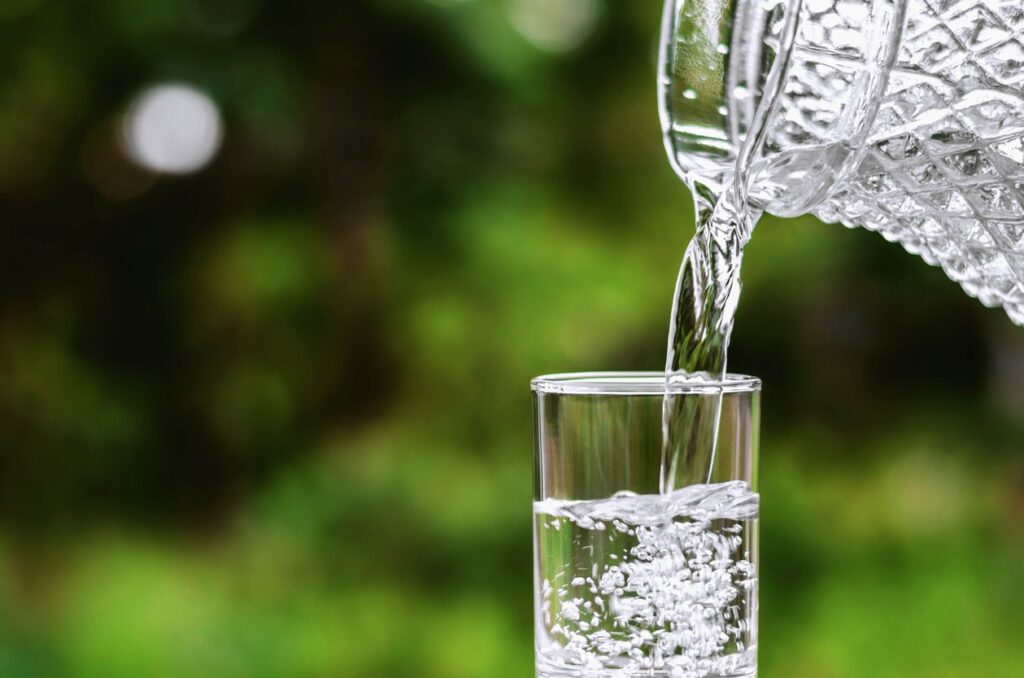
source: pinterest.com
When deciding which type of system is best for you, consider factors like cost, maintenance requirements, and how much space you have available for installation. Reverse osmosis systems are generally very effective at purifying water but have some drawbacks, like frequent maintenance, and can be expensive to install and operate. Additionally, reverse osmosis systems won’t remove some contaminants, so do your research before investing in one.
Water softeners require less maintenance, but they don’t filter out as many contaminants as an RO system, so they may not be suitable for households with high water contamination. Whole-house filtration systems provide clean filtered drinking throughout an entire home, but they require more installation space, so they may not work for smaller homes or apartments.
Improving Your Quality Of Life With Water Quality Services
It’s clear that having access to clean drinking water is essential for good health, so make sure you have the right system installed. Installing a filtration system or using a softener can help improve tap water’s taste while protecting plumbing fixtures from hard mineral buildup. Investing in one of these systems now could save you money down the road.
If you’re concerned about your home’s water quality, call our Iron Mountain Plumbing team. Most residents want their homes to provide fresh, clean water they can use year-round. That’s why our team of experienced plumbers provides top-notch water quality services, from installation and maintenance to repair and replacement. We proudly serve residents throughout Cedar City, St. George, and the surrounding areas, so call us today to see how we can help improve your water quality.

